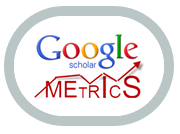READING FABLES BEYOND THE CONFLICT BETWEEN CHARACTERS
DOI:
https://doi.org/10.47456/pl.v13i35.42326Keywords:
Leitura., Fábula, Ensino de Língua PortuguesaAbstract
The discursive fable genre offers a rich opportunity for inferential reading activities that transcend the understanding of the conflict between the characters in the fabulistic narrative and allow the interpretation of the allegorical way in which the fable brings into question character traits and behavior of human beings. The discussion about moral values is an aspect of human formation and critical action in the social world. Many current teaching materials, however, still have a limited approach to reading this genre. This article aims to contribute to fable reading practices, after pointing out the restricted perspectives of a fable reading proposal in current didactic material. It is based on the Bakhtinian conception of language and on the sociocognitive perspective of reading. The results show that fable can be approached through four reading procedures, articulated from the theoretical foundation. In this way, it is possible to mobilize knowledge about the genre, the theme of the fable and its relations with human behavior. It is concluded that, thus developed, the reading of the fable allows a responsive, dialogical and critical attitude towards the moral value put under discussion, in tune with the competences foreseen for the teaching of the Portuguese Language.
Downloads
References
Referências
AUTOR. 2021. (referência suprimida para garantir o anonimato).
BAKHTIN, Mikhail. Estética da criação verbal. Trad. Paulo Bezerra. 4.ed. São Paulo: Martins Fontes, 2003.
BRAIT, Beth. O texto nas reflexões de Bakhtin e do Círculo. In: BATISTA, R. de O. (Org.). O texto e seus conceitos. São Paulo: Parábola, 2016. p. 13-30.
BRASIL. Ministério da Educação; Secretaria de Educação Básica. Base Nacional Comum Curricular (BNCC). Brasília: MEC; SEB, 2018. Disponível em: http://basenacionalcomum.mec.gov.br/images/BNCC_EI_EF_110518_versaofinal_site.pdf. Acesso em: 17 jun. 2020.
DEZOTTI, Maria C. C. (Org.). A tradição da fábula: de Esopo a La Fontaine. Brasília: Editora Universidade de Brasília: São Paulo: Imprensa Oficial do Estado de São Paulo, 2003.
GODOY, Arilda S. Introdução à pesquisa qualitativa e suas possibilidades. Revista de Administração de Empresas, São Paulo, v. 35, n. 2, p. 57-63 mar./abr. 1995. Disponível em: https://www.scielo.br/scielo.php?script=sci_arttext&pid=S0034-75901995000200008&lng=en&nrm=iso. Acesso em: 11 jun. 2020.
FIORIN, José L. Millôr e a destruição da fábula. Alfa Revista de Linguística, v. 30/31, 1986/1987. Disponível em: https://periodicos.fclar.unesp.br/alfa/article/view/3780. Acesso em: 5 fev. 2023.
FIORIN, José L. Leitura e dialogismo. In: ZILBERMAN, R.; RÖSING, T. M. K. (Orgs.). Escola e leitura: velha crise, novas alternativas. São Paulo: Global, 2009. p. 41-59.
HOGETOP, Mônica; POUTOU, Fidele. Análise de atividades de leitura do livro didático projeto Teláris Português 8º ano. Linguagens: Revista de Letras, Artes e Comunicação, Blumenau, v. 11, n. 1, p. 288-302, jan./abr. 2017.
KOCH, Ingedore G. V. A construção sociocognitiva da referência. In: MIRANDA, N. S.; NAME, M. C. (Orgs.). Linguística e cognição. Juiz de Fora: Ed. UFJR, 2005.
KATO, Mary A. O aprendizado da leitura. São Paulo: Martins Fontes, 1985.
KLEIMAN, Ângela. Leitura: Texto & leitor: aspectos cognitivos da leitura. Campinas: Pontes, 1989.
KOCH, Ingedore V.; ELIAS, Vanda M. Ler e compreender: os sentidos do texto. São Paulo: Contexto, 2006.
LAKATOS, Eva M.; MARCONI, Marina de A. Fundamentos da Metodologia Científica. 5.ed. São Paulo: Atlas, 2003.
MARCUSCHI, Luiz A. Exercícios de compreensão ou copiação nos manuais de ensino de língua? In: LAJOLO, Marisa. (Org.). Em Aberto. Brasília, ano 16, n. 69, jan./mar. 1996. p. 64-82.
MARCUSCHI, Luiz A. Produção textual, análise de gênero e compreensão. São Paulo: Parábola, 2008.
MOITA-LOPES, Luiz P. A pesquisa interpretativista em Linguística Aplicada: a linguagem como condição e solução. DELTA, São Paulo, v. 10, n. 2, p. 329-338, 1994. Disponível em: https://revistas.pucsp.br/index.php/delta/article/view/45412/29985. Acesso em: 01 mar. 2022.
SANTOS, Rosemary dos. Leitura de poema em material didático da EJA. Macabéa – Revista Eletrônica do Netlli, Crato, v. 11, n. 1, p. 35-51, 2022.
SÃO PAULO. Secretaria da Educação. Currículo em Ação: Língua Portuguesa. Ensino Fundamental, Caderno do Professor, Anos finais, 1º semestre. São Paulo: SE, [2022?].
SILVA, Rubens M. da; TESTA, Eliane C. Análise de propostas do ensino de poesia no livro didático Português Linguagens. Travessias, Cascavel, v. 13, n. 1, p. 100 – 118, jan./abr. 2019. Disponível em: http://www.unioeste.br/travessias. Acesso em 20 out. 2020.
SOLÉ Isabel. Estratégias de leitura. 6. Ed. Porto Alegre: Artmed, 1996.
VOLOCHÍNOV, Valentin. Marxismo e filosofia da linguagem. Problemas fundamentais do método sociológico na ciência da linguagem. Trad. Sheila Grillo e Ekaterina Vólkova Américo. São Paulo: Editora 34, 2017.
Downloads
Published
How to Cite
Issue
Section
License
Copyright (c) 2023 PERcursos Linguísticos

This work is licensed under a Creative Commons Attribution-NonCommercial-NoDerivatives 4.0 International License.
O autor de submissão à Revista PERcursos Linguísticos cede os direitos autorais à editora da revista (Programa de Pós-Graduação em Linguística - UFES), caso a submissão seja aceita para publicação. A responsabilidade do conteúdo dos artigos é exclusiva dos autores. É proibida a submissão integral ou parcial do texto já publicado na revista a qualquer outro periódico.
Os trabalhos aqui apresentados utilizam a licença Creative Commons CC BY: Attribution- NonCommercial- NoDerivatives 4.0 International. Para mais informações, verificar: https://creativecommons.org/licenses/by-nc-nd/4.0/
Os trabalhos na revista são arquivados pelo sistema Rede de Preservação PKP (PKP PN) e LOCKSS





